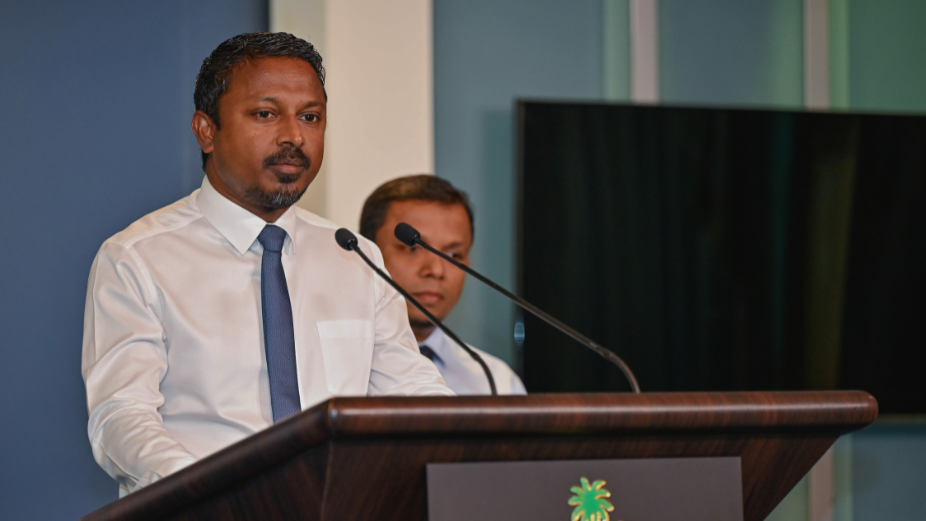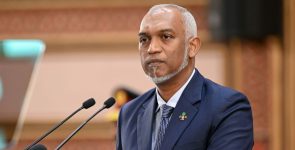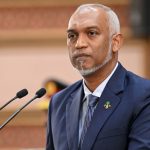
Attorney General Ahmed Usham has affirmed the Maldives Monetary Authority’s (MMA) authority to impose foreign exchange regulations, including a rule requiring tourist facilities to exchange a specific amount of dollars per tourist. The regulation, which came into effect on 1 October, has faced criticism from legal professionals and businesses in the tourism sector.
Under the rule, resorts, city hotels, guesthouses, and safari vessels must exchange USD 500 per tourist, while hotels with 50 rooms or fewer are required to exchange USD 25 per tourist. Despite this, approximately 70 resorts have formally requested the MMA to reconsider the regulation, citing operational challenges in meeting the specified dollar requirements.
Legal Basis for the Rule
Speaking on Tuesday, Attorney General Usham clarified that the MMA, as an independent institution, has the legal authority to introduce such measures. He noted that the Attorney General’s Office had not provided legal advice to the central bank on drafting the rule but had engaged in discussions with MMA Governor Ahmed Munawar regarding its implementation.
Usham stated that the MMA’s mandate includes ensuring sufficient foreign exchange reserves and that the rule aligns with this objective. “I don’t think what they did was unconstitutional or illegal,” he said.
Industry Concerns
The regulation has sparked significant pushback from the tourism industry. Resort operators and other stakeholders have argued that the rule places an undue burden on businesses and may disrupt cash flow management. Critics have also questioned the practical implementation of the rule, particularly in accommodating seasonal variations in tourist arrivals and revenue.
This sentiment has been echoed by legal professionals who have raised concerns about the scope of the MMA’s authority, suggesting that the rule could potentially overreach its mandate.
As discussions around the MMA’s foreign exchange rules continue, attention has turned to how these measures will impact the Maldives’ economic landscape. While the Attorney General has defended the rule’s legality, the broader implications for the tourism sector and foreign exchange stability remain subjects of debate.
Subsidy Reforms Expected to Drive Inflation in Maldives by 2025
The Ministry of Finance has projected an increase in inflation to 3.9 percent in 2025, following the implementation of subsidy reforms scheduled for next April. The reforms will see the government transition from broad subsidies to targeted assistance, focusing on those most in need.
In September 2024, the inflation rate in the Maldives was at 1.1 percent, a significant drop from 2.6 percent last year at the same time. Historically, inflation in the Maldives has remained low due to subsidies and price controls on essential goods and services, including fuel, staples, electricity, and sewerage. These measures have insulated consumers from the impact of fluctuating global prices, particularly in areas like electricity, where subsidies offset rising fuel costs.
Targeted Subsidy Model
Starting next April, subsidies in the aforementioned sectors will be restructured to provide targeted relief. The proposed 2025 budget allocates MVR 900 million for subsidies, marking a shift towards a more sustainable approach to financial assistance. The reforms are part of broader fiscal measures aimed at reducing government spending while ensuring support reaches the most vulnerable populations.
Short-Term and Long-Term Implications
The immediate consequence of these reforms is expected to be a rise in consumer prices, contributing to the projected inflation rate of 3.9 percent. This increase, according to the Ministry of Finance, could extend over the course of a year as the changes take effect.
While the International Monetary Fund (IMF) predicts a decline in global prices in the medium term, which could ease inflationary pressures, the transition period for these reforms is likely to present challenges for many households. The removal of blanket subsidies means that higher costs for fuel, electricity, and staple goods may be felt directly by consumers who do not qualify for targeted assistance.
Economic Context
The reforms come as part of the government’s strategy to address fiscal constraints and reduce wasteful expenditures. By focusing subsidies on those who genuinely need them, the government aims to ensure more efficient use of resources. However, the move also raises questions about the adequacy of the MVR 900 million allocation to cover essential needs, particularly as prices are expected to rise during the adjustment period.
For businesses, the reforms could lead to increased operational costs, particularly in energy-intensive sectors. These costs may be passed on to consumers, further amplifying the inflationary impact. On the other hand, a more streamlined subsidy system could free up fiscal space for other developmental priorities in the long term.
Public Sentiment and Policy Implementation
The success of these reforms will depend on the government’s ability to effectively identify and support those most in need. Transparent criteria and efficient implementation mechanisms will be crucial to ensuring that targeted subsidies reach vulnerable populations without creating additional administrative burdens.
Public response to the reforms will likely hinge on how well the government manages the transition and mitigates the impact of rising costs. With inflation already projected to rise, clear communication and timely support for affected households will be essential to maintaining public confidence in the policy.
As the Maldives prepares for these subsidy reforms, the government faces a delicate balancing act: managing fiscal sustainability while cushioning the economic impact on its citizens. The projected rise in inflation underscores the need for careful planning and execution, with long-term success reliant on the efficiency and fairness of the targeted subsidy model.












